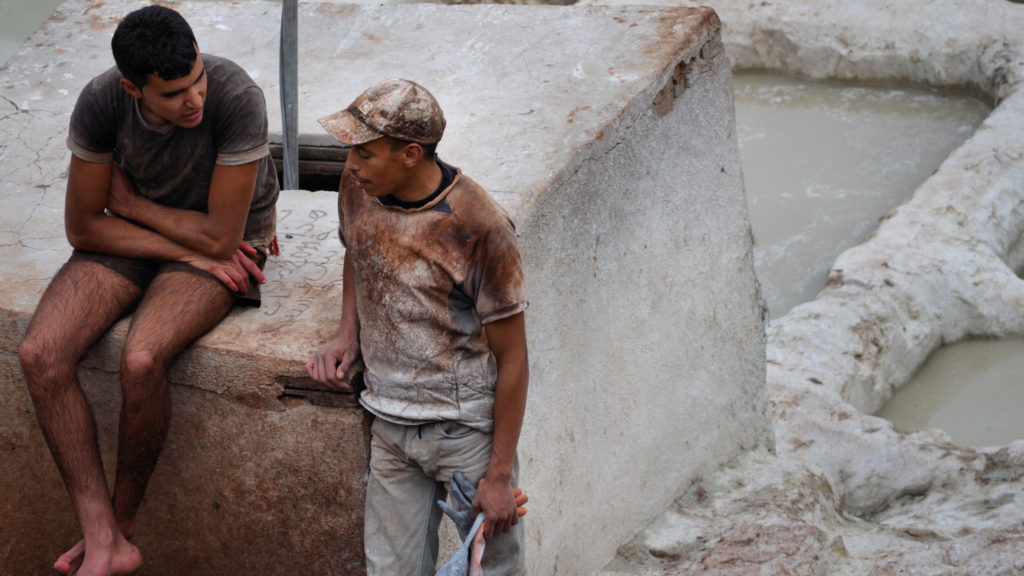If you want to improve your power of listening, I highly recommend a book by Mark Goulston: “Just Listen. Discover the Secret to Getting Through to Absolutely Anyone”
But listening is only preparation for something more important: to help others become better persons. As you remember in the exposition measurement tool Co-opIndex, we assumed that the best organization is the one that helps us to improve ourselves. In this short text, I present how it could be done in a company. As you can imagine there is no management textbook that would address this question. The reason is simple. The organizations focus on results, missions, goals, not individuals.
I propose to follow the road proposed by Jean Vanier in his much undervalued, but excellent book “Becoming human”. It gives an answer to this question. He sees one of his goals in the following way:
Human beings need to be encouraged to make choices and become responsible for their own lives and for the lives of others. We need to be encouraged to evolve in order to become mature, and to break of the shell of self-centredness and out of our defence mechanisms [1].
Making choices is what free will is about. It is the starting point for anything else. I consider the book, one of the best management textbooks or better leadership textbooks, for those who see persons and not profit as the goal of organisations. Vanier starts his book with the first and fundamental experience – the experience of loneliness.
Loneliness
According to him, our loneliness is essential to our humanity. It can, on the one hand, appear as a faint disease, an inner dissatisfaction, which sometimes leads to depression. On the other hand, it can be a source of creative energy to change the world. The only way to get out of loneliness is through relationships. It is the others’ acceptance and love that can take us out from loneliness. One of those whose inventions changed our lives was Nikola Tesla, the inventor, and proponent of alternating current (AC), electric engine, etc. In spite of his many gifts he was very lonely and did not control his gambling impulses. Genius mind and lack of control lead him to a tragic life. In this post, I will try to show how your company may become a place of love as described by Vanier. Father Arizmendiarrieta, the co-founder of Mondragon Co-operatives, once said that in their co-operative everyone takes responsibility for everything. One of the co-operative values – solidarity – is bearing the weight with others. Only others can pull you out from loneliness, to help you organize your life. This is why co-operative or other community is what we need. According to Vanier the love of others can transform you through the following seven aspects of love, in this case, the love of the group.
1. Revealing your value

cc by Farhad Sadykov at flickr
The first is revealing to you your value. Perhaps some of the results described in this book can play this function. If I were to say what co-operative value is the closest to this aspect, it would be openness. You can be open to everyone only if you consider that every person is valuable. When a co-op has a problem with open membership it may be a deep sign of some weakness in loving others. We will come back to this aspect later. A good example of a social enterprise which does a wonderful job of revealing to people their values is Belgian De Kringwinkel WEB. It employs only individuals who were unemployed for many years, and it has a group of therapists who help the employees to overcome their problems in finding a place in society.
2. Understanding
The second aspect is understanding you. Understanding someone speaking in another language requires knowledge of the language. There are so many domains of expertise to be studied to create a successful company. I have stressed many times before, how important understanding is both on individual and organisational levels. You cannot understand people without understanding what forces play a role in their behaviour. In critical situations, it is advisable to ask employees what they think about their company. In one of my consulting projects, we conducted more than ten focus groups with all employees. One of the questions was: “If your company were an animal, what animal would it be?” When we heard answers like “vulture” or “leech,” we understood through these metaphors the feelings of the employees about their company. It was a starting point for the next step.
3. Communication
The next aspect of love is communication. I started this project with posts with horrible and controversial facts. But there is no other way out. As Vanier writes “to name something is to bring it out of chaos, out of confusion, and render it understandable [2].” Communication is, as I will show later, crucial for company functioning. There is hardly anything more essential for improving communication than a regular, at least weekly, meeting of the team, where they can freely express their feelings, plans, concerns, ideas. Such meetings should be conducted each time by a different member of the team and should become a regular practice in all organizations.
4. Celebration

cc by Anton Kuzmin at flickr
The fourth aspect of love is the celebration. To be sure to be valued, people have to see their value being admitted in public. Many occasions can serve this purpose. Success without celebration is absent in our minds. One of the forms of celebrating one’s value in an organization is showing the person its place in the chain of processes performed by the organisation. Another is underlining the impact of a person during a weekly meeting. An interesting example of celebration can be found in Suma Wholefood Co-operative in the UK. On the wall of the main building, there are photos of all co-op members. It differs from other organizations, which either have the pictures of the board or the greatest achievers. Similarly, on the web page of Fairphone (https://www.fairphone.com/about/) there are pictures and short biographies of all 48 team members, including interns.
5. Empowerment
Only when other aspects are present, comes empowerment. Gradually, the more you are valued, understood and communicated with, the more chances there are of empowerment. This is usually the moment when our free will starts to flourish. When we know we have an impact, when we know what we do is important, when we are aware we are loved, accepted, we have the power to deal with our everyday habits. If nothing you do matters, who should care to do it anyway. How can rising up from your bed be easy if nobody’s life depends on it? One of the greatest examples of empowerment can be found in the Mexican co-operative – Pascual. The frequent changes in the board and the existence of many special committees, as well as great independence of the members of the shop floor, make the co-operative an example of common meritocracy.
6. Communion
All of the above may vary depending on your behaviours and the patience of others. For instance, in times of crisis you and other people may be more stressed. You need the trust of the communion, as a buffer in case of such situations. If someone is nasty one day you can survive if you love that person. However, if you hate that person both of you are in trouble. Love, the uniting force of any community, is a difficult art that has to be practiced. It is not easy to be in communion with others. You have to work for it. Vanier writes it can also be dangerous, because this unconditional trust may on the one hand make us less motivated to improve, but on the other hand reveal one’s weaknesses, possible in trustful communities, which makes a person vulnerable. We need control and empowerment here as well.
7. Forgiveness

cc by Cristine Olson at flickr.jpg
We cannot, all the time, be attentive to reveal one’s value, understanding, communicating, empowering, celebrating, and be in communion. We make mistakes all the time. Sooner or later we will make a mistake. Someone will make a mistake. The last aspect of love – forgiveness -allows us to accept others’ weaknesses and allows others to accept us. Mutual forgiveness makes our individual progress possible. Without individual progress it is difficult to speak of organizational development. In one of the Polish family owned companies an employee was caught several times in the abuse of alcohol and not fulfilling his duties. The company CEO finally decided to sack him. Then he came to the office with his two colleagues who pleaded for him to be saved. The CEO did not speak to him, but asked his companions: “Will you take responsibility for his sobriety?” They agreed and made sure their friend did not drink. He recovered from his alcoholism, and still is one of the best employees in the company. Forgiveness was not granted by the CEO, but by the employee’s colleagues who knew he was a good employee, who understood his drinking, and were able to empower him with responsibilities in spite of his previous misconduct. Alcoholism, as any other addiction, is an illness of free will. Although I quoted research on rats before, I would like to point out that research on animals is not always 100% applicable to humans. Though community plays a crucial role in our lives, there are also many examples of people living good lives far from communities, but they usually had a community of a more spiritual character.
I propose to use the Vanier’s book as a guide to personal management and develop habits necessary for it.
| PREVIOUS | NEXT | ||
| Our habits in perception of others |
[1] J. Vanier Becoming human, p. 15
[2] Vanier, J. (1998). Becoming human. Toronto: Anansi (page 25).








 The participation in this project is free because it is financed by a grant of the European Union -
The participation in this project is free because it is financed by a grant of the European Union - 